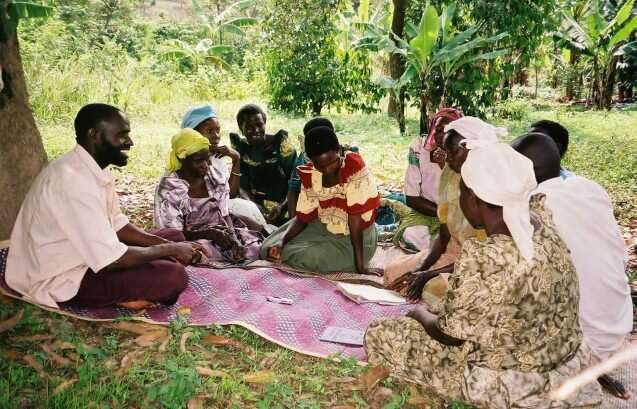This article has been reviewed according to Science X's editorial process and policies. Editors have highlighted the following attributes while ensuring the content's credibility:
fact-checked
peer-reviewed publication
proofread
Study highlights six tools for decolonizing climate research

Climate change is often framed as a scientific problem that requires technical solutions, but Indigenous activists and other leaders have long called for it to be recognized as a social crisis, too. Past and current fossil fuel development is rooted in the long history of European and North American colonialism and extraction—a legacy that can't be addressed through technology or science alone. A growing group of academics and activists are calling for climate solutions that repair the ongoing wounds of colonialism.
Research into climate solutions must be decolonized, according to an open-access paper published in Ambio in April. The paper builds on the decades-long efforts of Indigenous scholars and activists who have worked for the recognition of diverse knowledge systems alongside Western scientific methods. The paper suggests that epistemic justice, or the true and full inclusion of diverse ways of knowing, is just as critical as social or political justice in climate solutions.
To achieve epistemic justice and true partnership between local communities and top-down institutions in climate research and planning, the paper recommends practices for governing climate issues at the local, national, and international level. "Many people have spoken of recognition and respect, that the holders of the different knowledge systems have to recognize the intrinsic worth of other knowledge systems, have to respect them," said Ben Orlove, the paper's co-lead author and an anthropologist with the Columbia Climate School. "We move beyond that by saying we need specific mechanisms, of which consultation is only one."
The paper proposes six policy instruments that, when used together, can help decolonize climate research and planning. These instruments are: full consultation of Indigenous peoples and local communities in climate governance and research; free, prior, and informed consent on projects and activities that affect Indigenous peoples and local communities; recognition of customary law, including traditional cultural rules around land- and water-rights practices and territorial rights; intellectual property rights for Indigenous communities; Indigenous data sovereignty; and preservation and promotion of Indigenous languages.
The paper is clear that these instruments are not a simple fix for the long history of colonization. Nor do the authors suggest that including the instruments in climate research guarantees the sharing of power or full parity for Indigenous communities. But the paper argues that by using and building upon these instruments, transformation of the power relations between Indigenous Peoples and Western scientific and governmental bodies is more possible.
Decolonizing climate research requires transformative change—always a long and painstaking process. But as study author Melissa Nelson, a professor at Arizona State University School of Sustainability and an enrolled member of the Turtle Mountain Band of Chippewa Indians, said, "You do not enter partnerships with Indigenous Peoples unless you have a long-term commitment and you are giving, you're not just taking."
The authors point out that even the term "climate solution," though useful in certain contexts, can be problematic when considered through the lens of colonization. A single-minded focus on a solution or outcome risks ignoring the means taken to achieve it. In the context of Western colonialism, ends-over-means thinking often comes at the expense of Indigenous peoples. This is why the paper asserts that decolonizing climate research is necessary—because to bring about just outcomes, the process of building climate solutions must be made more just.
As Nelson put it, "If we're going to be talking about Indigenous knowledge systems and local knowledge systems, we ha[ve] to confront epistemic hegemony and epistemic justice and decolonization. Not just decolonizing climate policy, but really decolonizing the way we think about climate problems. We can't talk about solutions until we talk about how we frame the problems."
Ultimately, the goal is a transformation in the power relations and process of climate research. It's a daunting, slow task, but a necessary one. "Really what climate change has exposed is how little we know about a changing Earth and how little we know about human resilience and human vulnerability. And so by the invitation of transformative change and really placing it in transformative climate research, I'm hoping it will encourage more radical research, more radical partnerships, more risk taking," said Nelson.
The paper grew out of a working group led by Orlove and Passang Sherpa, of the Department of Sociology at Tribhuvan University in Nepal. The authors, who are Indigenous and non-Indigenous, collaborated across time zones. Orlove hopes the six instruments and other recommendations for the transformation of power relations in climate research and governance will help to inform the upcoming seventh cycle of the U.N.'s climate report.
More information: Ben Orlove et al, Placing diverse knowledge systems at the core of transformative climate research, Ambio (2023). DOI: 10.1007/s13280-023-01857-w
Journal information: AMBIO
Provided by State of the Planet
This story is republished courtesy of Earth Institute, Columbia University http://blogs.ei.columbia.edu.




















